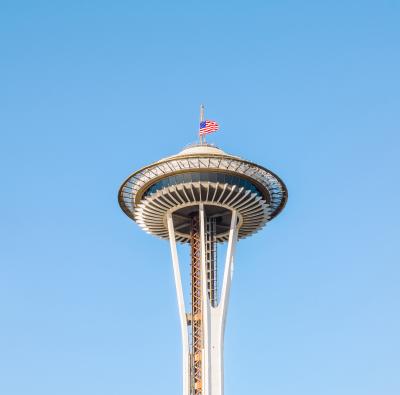Summary
Elster v. City of Seattle is a First Amendment challenge to Seattle’s new public campaign financing program. Plaintiffs in the case, two Seattle property owners, aim to have the law struck down as unconstitutional.
Seattle’s Democracy Voucher Program, which is funded by a modest property tax estimated to cost the average homeowner about $11.50 per year, was overwhelmingly approved by city voters in 2015. The program – which went into effect in 2017 – offers any adult city resident who is a U.S. citizen or green-card holder with four $25 “democracy vouchers” to give to qualified candidates of their choosing. The idea is to empower individuals who could not necessarily afford to attend a $5,000-per-plate fundraising dinner to participate meaningfully in local politics. By design, Seattle’s funding program gives regular voters a voice in city government, and makes elected officials more accountable to the people they represent and less indebted to big donors and special interests.
Candidates who choose to participate in the program must first demonstrate meaningful grassroots support and agree to certain conditions, including spending caps and lower contribution limits. That means participating candidates can remain competitive in Seattle elections even if they don’t spend all of their time raising large private contributions from big donors and deep-pocketed special interests—which, in turn, encourages participating candidates to seek a broader and more representative base of support and conduct more meaningful voter outreach.
CLC, joined by Common Cause, has filed a friend-of-the-court brief in the Washington Superior Court for King County. In the brief, CLC argues that the Democracy Voucher Program provides a subsidy to participating candidates but in no way restricts the free speech of non-participating candidates or their supporters.
UPDATE: On Nov. 3, 2017, the Superior Court issued an opinion announcing they had dismissed the challenge, upholding the public financing system. Read CLC's press release announcing this victory.
What’s at Stake
Courts have long recognized that public campaign financing laws are an effective means of preventing corruption and its appearance. Governments and the constituents they serve also have a powerful interest both in boosting citizen engagement in campaigns and governance, and loosening the stranglehold that large donors have had over the terms of political debate.
If the court strikes down the Democracy Voucher Program, Seattle campaigns will once again be susceptible to, in the words of the U.S. Supreme Court, “the deleterious influence of large contributions on our political process.” In the longer term, it would invite similar challenges to other state and local public financing programs—and, if the plaintiffs’ legal arguments were to take hold in the courts more broadly, it would potentially put at risk many forms of public campaign financing that relies on tax revenue.
